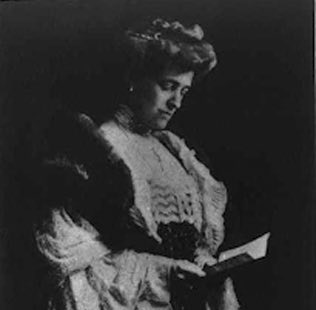Considered one of the major American novelists and short story writers of the 20th century, Edith Wharton was known for her unflinching portrayal of the societal norms of her time.
Wharton was raised in the highly stratified and wealthy society of the urban Northeast. Although she published a volume of poetry at the age of 16, it was not until almost 20 years later that she began her literary career earnest. Following publication of several short stories, her first book, The Decoration of Houses (1897), had a pronounced influence on the styles of interior decoration of the day. Her first novel, The Valley of Decision (1902), was published when Wharton was 40. From then on, she averaged more than a book a year for the rest of her life.
The majority of Wharton’s works provided keen, and sometimes harsh, observations of society’s upper strata. Her upbringing provided her with insights on the upper class, while her sense of humor and polished prose made the reading interesting to a wide audience. Her attention to the physical contexts in which her characters lived led Edmund Wilson to describe Wharton not only as “the pioneer, but the poet, of interior decoration.” In the early 1900’s, Wharton changed her focus and created the memorable and eerie Ethan Frome (1911) and Summer (1917). These were followed by The Age of Innocence (1920), a Pulitzer Prize winner that
explored social hypocrisy and convention with sharp irony.
Wharton was a member of the National Institute of Arts and Letters and the American Academy of Arts and Letters. She also was the first woman to receive an honorary doctorate from Yale University. During the First World War, the writer aided refugees and the wounded. At one time she fed and housed 600 war orphans at her own expense. The French and Belgian governments officially honored her wartime service.

